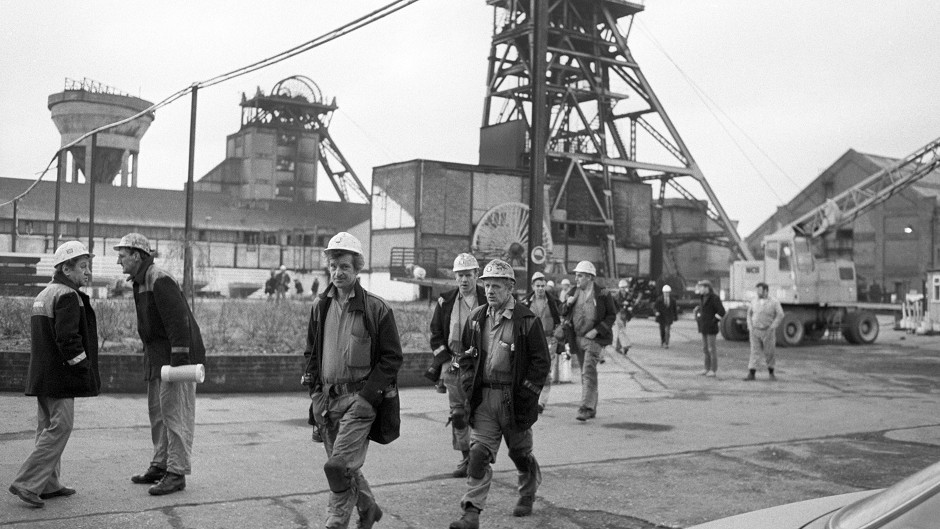Banners carried by miners returning to their local pits at the end of the historic year-long strike – which lasted from 1984-85 – will be displayed to mark the 30th anniversary of the end of the dispute
Tens of thousands of mineworkers marched back to their local pit 12 months after the start of the walkout over closures, many holding specially made banners portraying their solidarity after such a long time out of work.
Many will be on display at Wakefield’s Unity Works on March 7 under the title With Banners Held High, during a day of music, drama, debates and films to remember the emotional end of the strike.
Events to remember the March 3 anniversary are being held with the prospect of the UK having no deep pits by next year.
Just three underground collieries remain, but two of these – Kellingley in Yorkshire and Thoresby in Nottinghamshire – could close by the end of the year without state aid, and the third, Hatfield in Doncaster, could follow suit by mid 2016.
Granville Williams, who has helped organise the Wakefield event, said coal will still be burnt in power stations across the UK, but imported from other countries.
It is “puzzling” that an industry which employed a million workers at its peak is now threatened with extinction, he said.
Calls for a public inquiry into policing and other aspects of the strike will intensify in coming days, while the anger and bitterness which characterised the dispute will be rekindled.
The revelation last year in government papers released by the National Archives that Margaret Thatcher secretly considered calling in the troops at the height of the strike has increased calls for a full blown public inquiry.
Labour MP Ian Lavery, a former president of the National Union of Mineworkers, said it was “outrageous” that an inquiry had not been held, given that so many workers were “wrongly” arrested or convicted.
He told the Press Association: “There should be an independent inquiry, covering the policing of the strike in every town and village as well as at Orgreave.
“Mining areas up and down the country were ravaged by the pit closures and many are yet to recover, but passions have not waned, and in 100 years time I am sure people will say their great-grandfather was a miner and was proud to have taken part in the strike.”
Mr Lavery still remembers the day he returned to his pit in Ellington, Northumberland, after being on strike for a year, alongside other miners including members of his family.
“Grown men were crying, thinking what they had been through, and there was a mixture of emotions – relief, frustration, anger. It was a day I will never forget.
“It’s staggering to think that on the 30th anniversary of the end of the strike, we could be seeing the closure of the last remaining deep mines in this country.
“But regardless of what happens to the last three mines, we will battle on for measures such as carbon capture and storage. A third of our electricity is still generated by coal, there are vast reserves of coal in the UK, yet we are importing huge amounts of coal from countries such as Russia and Colombia.”
Chris Kitchen, general secretary of the National Union of Mineworkers, believes the coal industry is treated less favourably than other energy sectors, highlighted by the current pleas for help from oil and gas companies because of falling oil prices.
He backed calls for an inquiry into the strike, describing what happened as “nothing short of industrial vandalism”.
The strike started in early March 1984 over pit closures planned by the state-owned National Coal Board, pitting Mrs Thatcher’s government against the NUM and its fiery leader Arthur Scargill.
Calls are also being stepped up for an inquiry into the events at Orgreave in South Yorkshire in June 1984 when 96 people were arrested and 51 injured during some of the most violent clashes between police and pickets.
Police maintain they were subjected to a hail of missiles from among thousands of pickets who had gathered outside a coking plant to try to prevent lorries leaving, but the miners say police overreacted.
The Independent Police Complaints Commission is expected to announce soon if an inquiry will be held.
The NUM executive voted to return to work on March 3 1985, with most miners going back two days later
